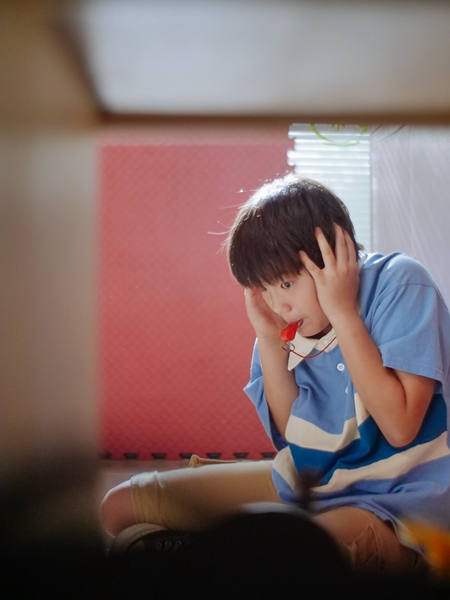

The movie pays particular attention to the benefits of encouragement of, and assistance to, parents of children with autism as they tackle with feelings of exhaustion and hopelessness.
Reacting to their common concern that their children might not get proper care after they pass away, the movie describes an ideal picture at the end where the public have knowledge of the condition and society can step in and help.
One small but important move has been a cafe where volunteers can meet and help parents.
While recognizing the movie plot as largely conforming to real life scenes, Zhang Rong, associate professor of neurobiology at Peking University Health Science Center, says the mother may be portrayed as "too perfect".
In reality, many parents are more emotionally sensitive and fragile in their behavior and communication with others. She calls for more toleration and support for such parents.
There's a lack of diagnosis and treatment resources and a scarcity of child psychiatrists in China, Zhang says, adding that not being able to identify subtypes of the disease can also affect rehabilitation.
Those with autism sometimes have surprising skills in programming, art or math and can make a valuable contribution to society. Exploring opportunities for these people would be a major step forward to help them integrate into society.